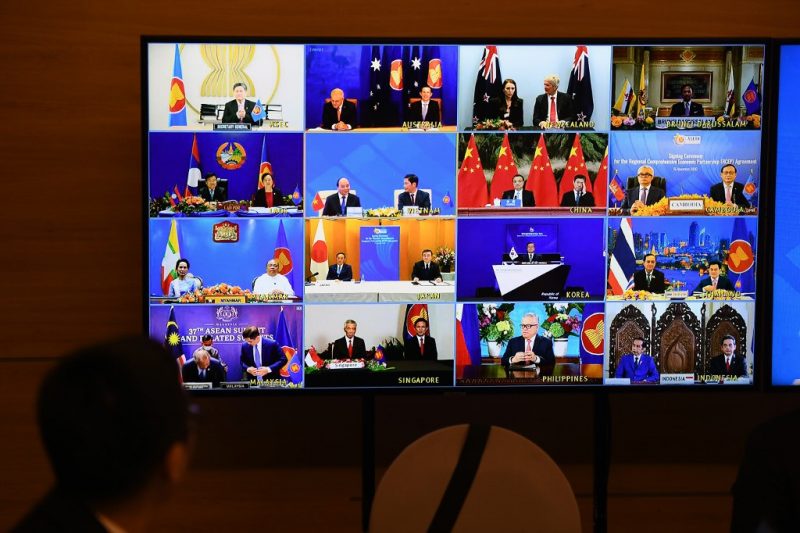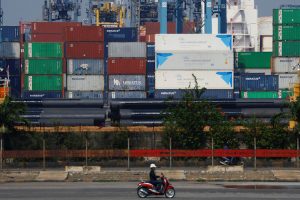The Indonesian parliament approved two major trade deals on Tuesday, backing membership of the Regional Comprehensive Economic Partnership (RCEP) and a bilateral pact with South Korea.
The trade agreement with South Korea is a move to attract investment to develop the electric vehicle and batteries industry in the Southeast Asian country, which has been a goal pursued by President Joko Widodo with companies such as Tesla, plus numerous groups from China keen to source nickel for EV batteries from the archipelago nation.
Meanwhile, Indonesia has followed the bulk of ASEAN in joining RCEP, which is the world’s biggest trade bloc.
Indonesian Trade Minister Zulkifli Hasan said the RCEP would boost trade, direct investment and increase the country’s GDP growth by 0.07 percentage point.
“We describe this agreement as a tollway to enter the global market, and it is time for Indonesia to storm the international markets,” he told lawmakers.
The RCEP covers nearly a third of the world’s population and about 30% of its gross domestic product. It was initially agreed by leaders of 15 Asia-Pacific countries in November 2020.
The pact, which does not include the United States, entered into force in January this year after seven nations in Southeast Asia, and Australia, China, Japan, and New Zealand ratified the pact last year.
Under the agreement with South Korea, Jakarta and Seoul will eliminate more than 92% and 95% of tariff lines respectively.
Indonesia will give preferential tariffs to support Korean investment in areas ranging from automobiles to apparel, Indonesia’s Trade Ministry said in a statement following signing of the deal in 2020.
South Korean companies such as Hyundai Motor and LG Energy Solution are currently among top investors in the electric vehicle and battery industry in Indonesia as it looks to take advantage of its rich nickel reserves.
- Reuters with additional editing by Jim Pollard
ALSO SEE:
Indonesia Hails Deeper Trade Cooperation After China Visit
Indonesia’s Jokowi, Tesla’s Musk Hold Talks on Nickel Funding
India plays it safe by avoiding RCEP
























